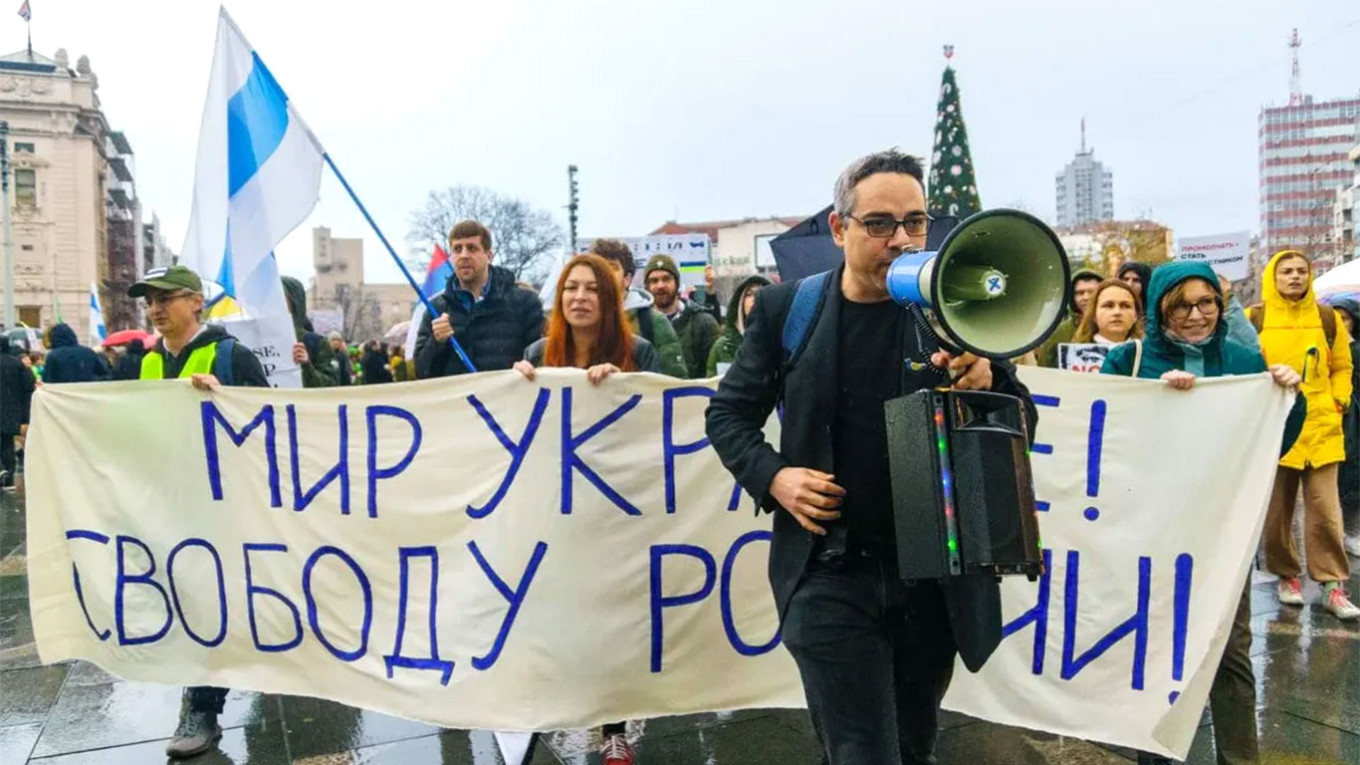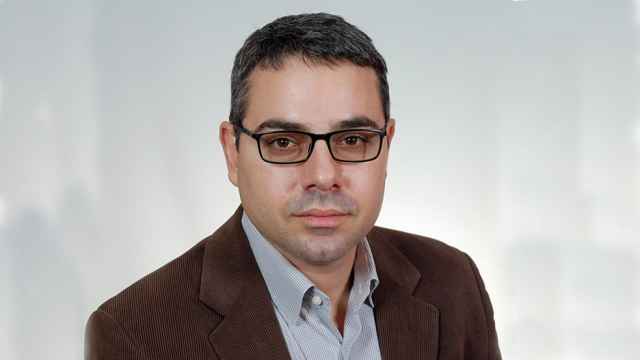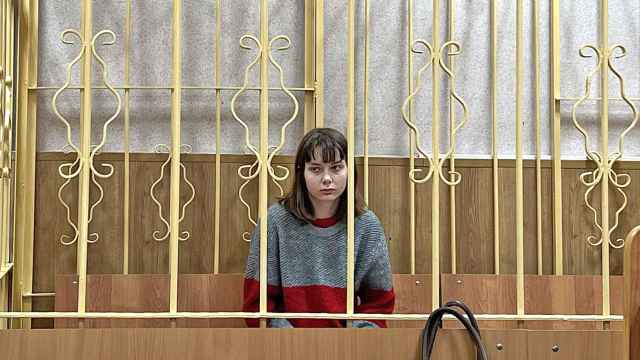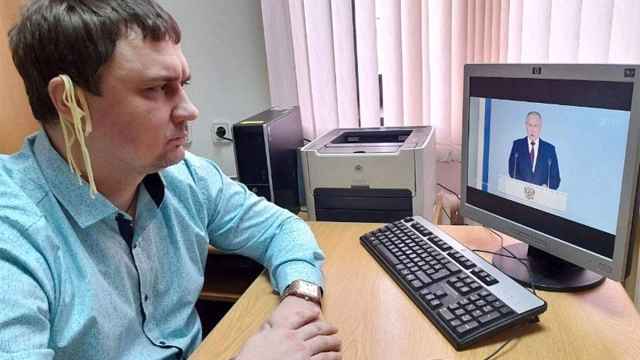A Russian anti-war activist’s lengthy ordeal at the Serbian border spells trouble for other Kremlin critics based in the Balkan country, independent Serbian and Russian analysts told The Moscow Times.
Peter Nikitin, an anti-Kremlin activist who has organized protests against Moscow's invasion of Ukraine, was barred entry when returning to Serbia on Thursday, with his lawyer saying a deportation order was issued by the country’s Security Information Agency (BIA).
After over 24 hours in the transit zone of Belgrade’s Nikola Tesla Airport, Nikitin was finally allowed through passport control on Friday evening.
"They let me go! Now we will celebrate," Nikitin told The Moscow Times via voice message.
Despite Belgrade’s close relationship with Moscow, Serbia had largely allowed anti-war Russians to resettle there without issue.
As a result, Nikitin’s holdup at the border, the first such case in Serbia since more than 100,000 Russians opposed to the war moved there, sends a bad signal to Nikitin and fellow activists, independent Serbian and Russian analysts said.
"Mr. Nikitin's case shows that anti-war Russians can no longer feel at ease in Serbia. Unfortunately, this is so and will be so in the future under the current authorities in Belgrade and Moscow," Srecko Djukić, the former Serbian Ambassador to Belarus, told The Moscow Times.
"Nothing positive can be expected for the active opponents of the war in Ukraine in the Republic of Serbia," Djukic added.
The incident shows that the Serbian leadership and security services may well take legal action at the request of the Kremlin or Russia’s security services against any Russian citizen whose activism displeases Moscow, said Andrei Soldatov, a senior fellow with the Center for European Policy Analysis and a researcher of the Russian secret services.
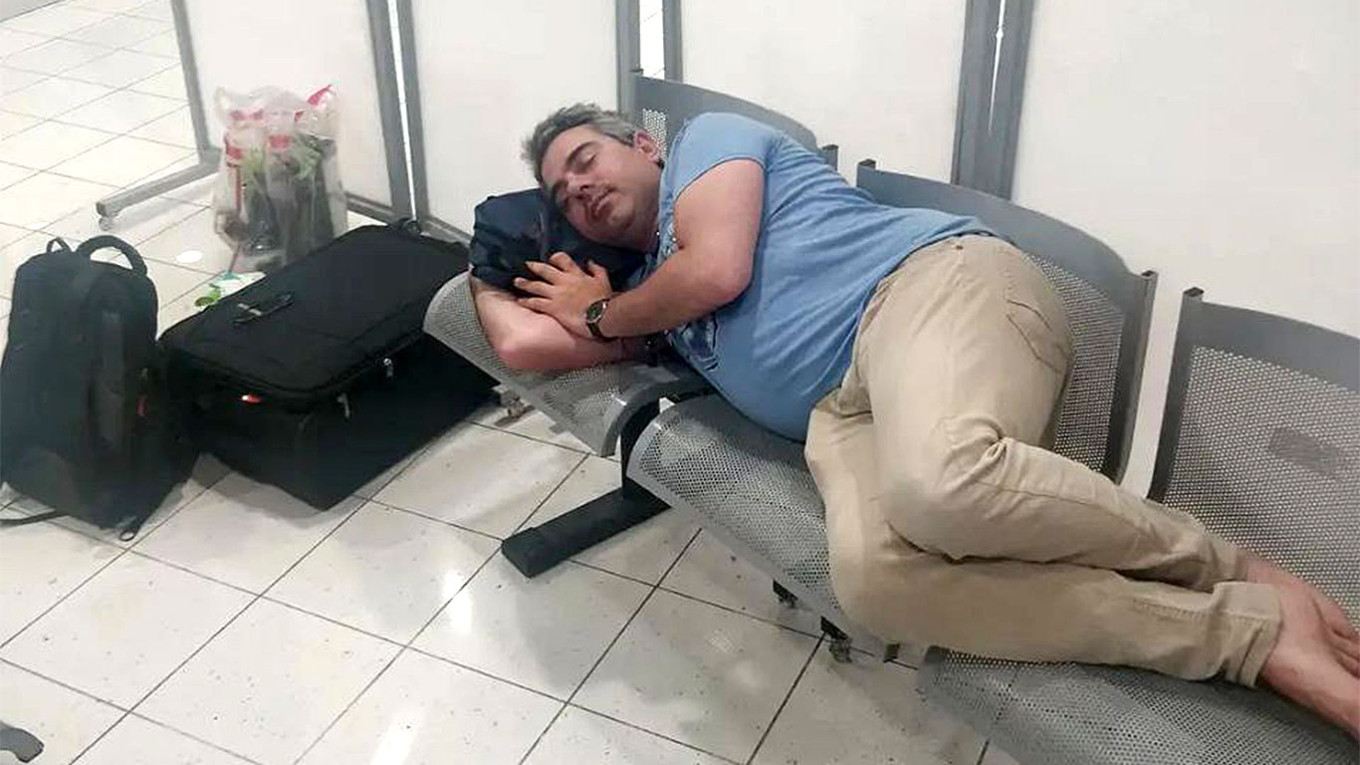
Nikitin holds Russian and Dutch citizenship in addition to his permanent Serbian residence permit. His two sons were born in Serbia and hold Serbian passports.
However, after landing in Belgrade after a trip to Portugal, he was kept at passport control for three hours before being informed that he had been denied entry.
He told The Moscow Times that he slept on a bench outside the passport control checkpoint. Airport staff treated him well, however, and allowed him to buy food and even order a coffee.
Nikitin soon sought the help of a lawyer, who appealed the entry ban with the Serbian authorities.
"This is a senseless ban. The paper I was given said that I was banned from entering because I was banned from entering Serbia," Nikitin said.
A lawyer and translator by profession, Nikitin has lived in Serbia long before Russia's full-scale invasion of Ukraine.
In Russia, he was an opponent of the Kremlin and a supporter of jailed opposition politician Alexei Navalny.
Nikitin has organized many demonstrations in Serbia in support of Navalny and other Russian political prisoners. After the outbreak of the war, Nikitin organized rallies protesting the Russian army’s actions, all of which were authorized by the Serbian authorities.
His brief entry ban is not the first time that Serbian intelligence has shown an interest in Russian opposition activists and politicians.
In December 2021, it was revealed that the BIA was monitoring and wiretapping Russian opposition leaders who were holding a seminar for Russian municipal deputies in Belgrade.
This came to light after Serbia's interior minister brought the recordings of the conversations to Moscow and handed them over to Nikolai Patrushev, the head of Russia's Security Council and President Vladimir Putin's closest supporter.
Evgeniya, an activist with the Russian Democratic Society in Serbia who asked to withhold her surname, said she and her fellow activists have never had any problems with the Serbian authorities.
“It was obvious to us, as well as to Peter, that this was due to the activism that Peter is involved in," she said. "Since our activism is in no way directed against Serbian domestic politics, suspicions arose that this story could not have happened without [Russia].”
She warned that Nikitin’s ban could lead to more pressure on activists and because of this, the Russian Democratic Society organized rallies in his support on Thursday and Friday.
"It was very important for us that Serbia remain a democratic country and not become a branch of repressive Russia," she said.
When Nikitin arrived at passport control in Belgrade, "my passport was taken away for three hours. When it was returned, I was informally told that I had been banned from entering by [the BIA]," he told The Moscow Times.
He said he believed the BIA order came at Moscow’s request.
"I don't see any other reason other than just an order from Moscow," Nikitin said.
Serbia-Russia relations in this area are opaque and hidden from the public eye — but experts suggested that Nikitin’s hunch was a possibility.
"Belgrade and Moscow and their security services do cooperate closely, and there are personal ties between the heads of the countries’ security services," retired Serbian diplomat Djukić said.
Soldatov confirmed that the Russian and Serbian security forces have built and maintained a good relationship with each other.
"Many officers of the Russian security services who were kicked out of Europe have been redeployed to Belgrade. And the local counterintelligence is not very nervous about this," he said.
Media reports have said that up to 300,000 Russians have arrived in Serbia since the war in Ukraine started in February 2022.
Russians are now the largest diaspora doing business in Serbia, the BBC’s Serbian service reported in May. There are almost 2,000 companies registered by Russians in the country, and another 5,000 people are registered as individual entrepreneurs. Many of them work in the IT sector.
This influx of a large number of qualified specialists who pay local taxes, buy property and contribute to the economy plays into the hands of the Serbian authorities. As a result, those who are not publicly involved in political and activist work are unlikely to attract the interest of Serbian security services.
However, incidents like Nikitin’s cannot be ruled out for other anti-war activists, Djukić said.
"We don't know what Belgrade and Moscow have planned,” Djukić said. “If Moscow needs something, I am sure that the Serbian authorities will cooperate in every possible way.”
A Message from The Moscow Times:
Dear readers,
We are facing unprecedented challenges. Russia's Prosecutor General's Office has designated The Moscow Times as an "undesirable" organization, criminalizing our work and putting our staff at risk of prosecution. This follows our earlier unjust labeling as a "foreign agent."
These actions are direct attempts to silence independent journalism in Russia. The authorities claim our work "discredits the decisions of the Russian leadership." We see things differently: we strive to provide accurate, unbiased reporting on Russia.
We, the journalists of The Moscow Times, refuse to be silenced. But to continue our work, we need your help.
Your support, no matter how small, makes a world of difference. If you can, please support us monthly starting from just $2. It's quick to set up, and every contribution makes a significant impact.
By supporting The Moscow Times, you're defending open, independent journalism in the face of repression. Thank you for standing with us.
Remind me later.



